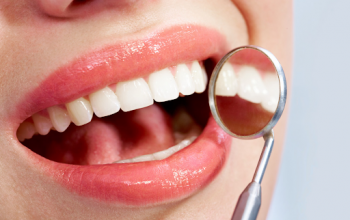

Maintaining good dental health is crucial not only for your smile but also for your overall well-being. Regular dental check-ups are a key component of preventative care, offering significant benefits that go beyond just keeping your teeth clean. In this article, we’ll explore how routine dental visits can help you save time and money while ensuring your oral health stays in top condition.
1. What Happens During a Regular Dental Check-Up
A regular dental check-up involves more than just a quick look at your teeth. It’s a comprehensive assessment designed to catch potential issues early, keeping your mouth healthy and saving you from more complicated treatments later on.
- Routine Examination:
- Dentists visually inspect your teeth and gums for signs of decay, gum disease, and other issues.
- Example: Catching early signs of cavities can lead to a simple filling rather than a more invasive root canal.
- Professional Cleaning:
- A thorough cleaning removes plaque and tartar that regular brushing and flossing might miss.
- Example: Preventing the onset of gingivitis, which can lead to more severe gum disease if untreated.
- X-Rays:
- X-rays are taken to identify problems not visible during the visual inspection, like impacted teeth or bone loss.
- Example: Early detection of impacted wisdom teeth can prevent pain and infection.
2. Common Issues Detected Early During Check-Ups
Early detection is one of the greatest advantages of regular dental check-ups. Identifying problems before they become serious can save you both discomfort and money.
- Tooth Decay:
- Early detection allows for simple treatments, like fillings, instead of more complex procedures.
- Example: A small cavity can be filled quickly, preventing the need for a crown or extraction.
- Gum Disease:
- Gum disease is easier to treat in its early stages when it’s often reversible with proper care.
- Example: Treating gingivitis early can prevent it from progressing to periodontitis, which is more difficult and costly to manage.
- Oral Cancer Screening:
- Dentists perform screenings to detect oral cancer early, increasing the chances of successful treatment.
- Example: A small lesion caught early can be treated with minimal intervention, whereas late-stage oral cancer may require extensive surgery.
3. Long-Term Financial Savings
Investing in regular dental check-ups can save you significant amounts of money in the long run. By catching problems early, you can avoid the high costs associated with emergency dental care and more complex treatments.
- Avoiding Expensive Procedures:
- Routine check-ups reduce the likelihood of needing costly treatments down the line.
- Example: Regular cleanings and exams can prevent the need for expensive procedures like root canals or dental implants.
- Insurance Benefits:
- Many dental insurance plans cover preventative care, minimizing out-of-pocket expenses.
- Example: Utilizing your insurance benefits for routine check-ups can help you avoid paying for more expensive treatments later.
4. Time Savings and Convenience
Regular dental check-ups help prevent dental emergencies, saving you time and hassle. By addressing issues early, you can avoid the need for lengthy and inconvenient treatments.
- Preventing Dental Emergencies:
- Regular care reduces the risk of sudden, painful dental problems that require immediate attention.
- Example: Catching a developing cavity early prevents the need for emergency dental visits and extensive treatments.
- Quicker, Easier Treatments:
- Early intervention means less time spent in the dentist’s chair and fewer disruptions to your daily life.
- Example: A small filling takes less time and is more convenient than a more complex procedure like a crown.

5. Building a Relationship with Your Dentist
Regular visits help you establish a relationship with your dentist St John’s Wood, leading to more personalized and comfortable care. Over time, this familiarity can make dental visits less stressful and more effective.
- Personalized Care:
- Your dentist becomes familiar with your unique dental needs and history, allowing for more tailored advice.
- Example: Your dentist can recommend specific brushing techniques or products that are best suited to your teeth and gums.
- Comfort and Trust:
- A strong relationship with your dentist can reduce anxiety and make future visits more comfortable.
- Example: Feeling more at ease during procedures because you know and trust your dentist.
6. Tips for Maintaining Oral Health Between Visits
Maintaining good oral hygiene between dental visits is essential for preventing issues from developing. Following these simple tips can help keep your teeth and gums healthy.
- Proper Brushing and Flossing Techniques:
- Brush at least twice a day with fluoride toothpaste and floss daily to remove plaque and food particles.
- Example: Use a soft-bristled toothbrush and replace it every three months to avoid gum irritation.
- Dietary Tips:
- Limit sugary foods and drinks, and eat a balanced diet rich in vitamins and minerals to support dental health.
- Example: Incorporate more calcium-rich foods like dairy products and leafy greens to strengthen your teeth.
- When to Schedule Your Next Check-Up:
- Most people should visit the dentist every six months, but some may need more frequent check-ups depending on their oral health.
- Example: If you have a history of gum disease, your dentist may recommend more frequent visits to monitor your condition.
Regular dental check-ups are a vital part of maintaining good oral health. By catching potential problems early, you can avoid more complicated, time-consuming, and expensive treatments down the road. In addition, these visits help build a strong relationship with your dentist, ensuring you receive the best possible care. Don’t wait for a problem to arise—schedule your next dental check-up today and invest in your long-term health and well-being.



